
An Easy Low-Carb Meal Plan for Fat Loss
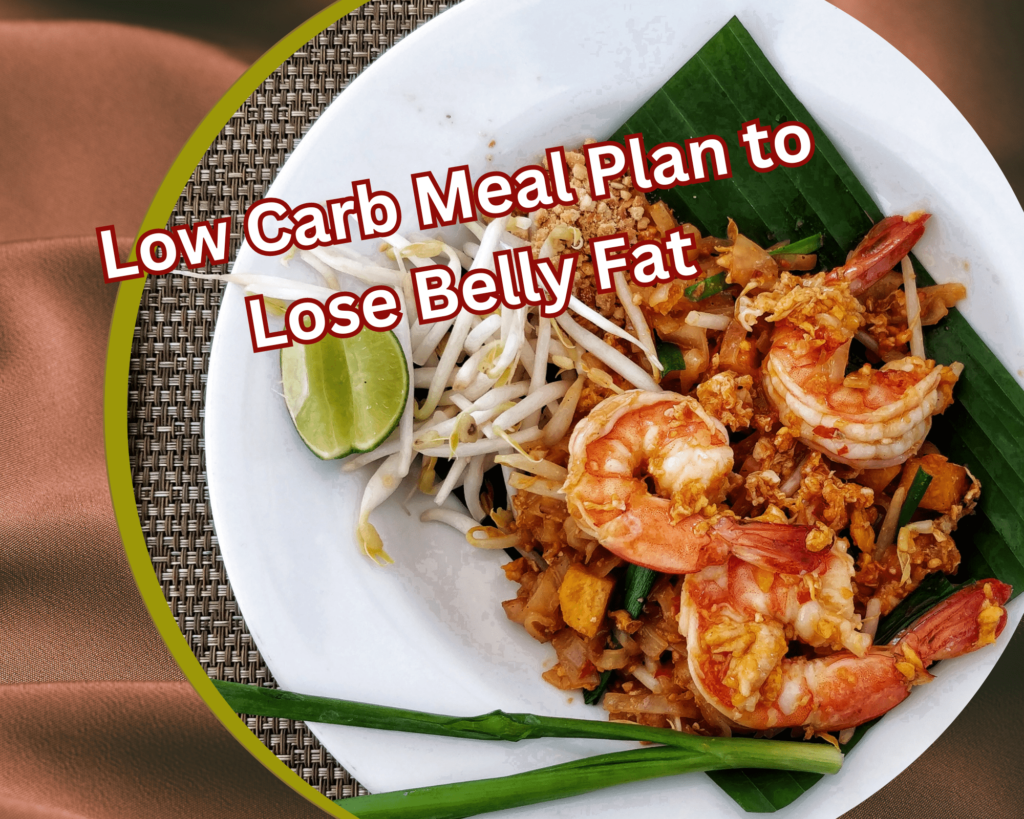
Disclosure: Please be aware that I may receive a small commission (at no extra cost to you) if you decide to make a purchase after clicking on a link in this article and making your purchase through one of my affiliate links.
This site does not provide financial or medical advice and is just for entertainment purposes. Before making any significant dietary changes, you should talk to your doctor.
Our affiliate disclosure is available in our privacy policy.
Switching to a low-carb meal plan for fat loss can be an effective strategy for shedding unwanted belly fat. By significantly reducing your intake of carbohydrates, you force your body to tap into its stores of fat for energy.
It’s important to approach this type of diet with caution and ensure that you are still providing your body with the necessary nutrients. It is worth pointing out that any change in diet that is not good for you or causes health issues needs to be avoided.

One key aspect of a successful low-carb meal plan for fat loss is focusing on high-quality fats and proteins. Incorporating foods like avocados, olive oil, nuts, and grass-fed meats can help keep you feeling satisfied while also supporting healthy metabolic function.
Additionally, prioritizing lean sources of protein, such as chicken breast and fish, can further aid in weight loss by boosting satiety and muscle preservation.
A common misconception about low-carb diets is that they are bland. On the contrary, there are countless delicious options available for those following this eating style.
Experimenting with different spices and herbs can add depth and complexity to your meals without adding unnecessary carbs.
Exploring alternative ingredients like cauliflower rice or zucchini noodles can provide the satisfaction of traditional dishes while keeping carb counts low. Ultimately, finding enjoyment in your meals is crucial for long-term success in any dietary plan
Table of Contents
Why you need a keto meal plan
A keto meal plan may seem like just another diet trend, but it offers a lot more than quick weight loss.
By following a ketogenic diet, you are essentially training your body to burn fat as its main source of fuel instead of relying on carbohydrates. This switch not only helps with weight loss but also provides steady energy throughout the day and reduces cravings for unhealthy foods.
In addition to its weight loss benefits, a keto meal plan has been shown to improve mental clarity and focus. When your brain is deprived of glucose from carbs, it starts using ketones produced from fat metabolism as an alternative source of energy. This can enhance cognitive function and help you stay sharp and alert throughout the day.
Adopting a keto lifestyle can have positive effects on various health conditions, such as diabetes and heart disease. By limiting carbohydrate intake, you are reducing blood sugar spikes that can lead to insulin resistance and high cholesterol levels. Many individuals who follow a ketogenic diet have reported improvements in their blood sugar control and lipid profiles
The science behind a low-carb diet: how it boosts fat loss
When it comes to discussions about weight loss, one term that often gets thrown around is a low-carb diet. This popular eating plan has gained traction for its effectiveness in promoting fat loss, but have you ever wondered what makes it so powerful? It all comes down to the science behind it.
The main reason a low-carb diet boosts fat loss is because it forces your body to tap into its stored fat reserves for energy. When you eat a high-carb meal, your body breaks down those carbohydrates into glucose and uses that as its primary fuel source.
However, when you restrict your carbohydrate intake, your body has no choice but to turn to alternative sources of energy – primarily fats – which leads to increased fat burning.
Another scientific aspect of low-carb diets is their impact on hunger hormones. Research has shown that reducing carbohydrate consumption can lead to decreased hunger and increased feelings of fullness.
When carbohydrates are limited, the hormone ghrelin (which stimulates appetite) decreases while satiety hormones like leptin increase. This means that by following a low-carb diet, you may naturally consume fewer calories without feeling deprived or constantly hungry.
So now that you understand the science behind a low-carb diet’s ability to boost fat loss, consider incorporating some delicious low-carb snacks into your daily routine for weight management.
Think crispy kale chips drizzled with olive oil and sprinkled with salt, or simple cucumber slices topped with cream cheese and smoked salmon. These snacks not only satisfy cravings but are also healthy and support your dietary goals.
They offer a satisfying blend of flavors and textures without causing a spike in blood sugar levels. Low-carb snacks can help you maintain a feeling of fullness throughout the day, reducing the temptation to reach for high-calorie, carb-heavy options.
Remember that while low-carb snacks are a valuable part of your weight management plan, it’s crucial to maintain a balanced and sustainable approach to your diet.
Benefits of a low-carb meal plan
A low-carb meal plan offers a multitude of benefits for those looking to improve their overall health. One of the most significant advantages is weight loss. When carbohydrates are limited, the body turns to its fat stores for energy, leading to a reduction in overall body fat and a leaner physique.
Studies have shown that low-carb diets can lead to lower blood sugar levels and improved insulin sensitivity, making them an effective option for individuals with diabetes or insulin resistance.
Another major benefit of a low-carb meal plan is increased satiety. Foods that are high in carbohydrates tend to be less filling and can leave you feeling hungry soon after a meal.
In contrast, foods rich in protein and healthy fats promote feelings of fullness and satisfaction, significantly reducing snacking throughout the day. This increased satiety not only aids in weight management but also helps stabilize mood swings associated with fluctuating blood sugar levels.
Choosing a low-carb meal plan has been linked to numerous heart-healthy benefits. Cutting back on refined carbohydrates such as white bread, sugary snacks, and sweetened beverages can lead to lower cholesterol levels and a decreased risk of heart disease.
By focusing on whole foods like vegetables, lean proteins, and healthy fats such as avocado or nuts instead of processed carbs, individuals can support cardiovascular health while still enjoying delicious meals.
Understanding carbohydrates and their impact on weight gain
Weight gain can be attributed to both simple and complex carbohydrates, so it’s helpful to know the difference between the two. The body produces glucose quickly from simple carbohydrates found in processed foods and sugary drinks. These cause insulin surges, which in turn contribute to weight gain because blood sugar levels are spiked.
Whole grains, fruits, vegetables, and legumes are all good sources of complex carbohydrates. They take longer to digest and provide sustained energy without the same blood sugar spikes.
The amount of carbohydrates eaten is more important in determining weight gain than the type of carbohydrate eaten. Despite all the health advantages of complex carbohydrates, eating too many of them at once can lead to weight gain.
It’s important to consume macronutrients in moderation and match them with your energy needs. It’s also important to remember that genetics and metabolism can give some people a higher tolerance for carbohydrates than others. In the end, learning about the various carbs and how they affect your body can be an effective tool in your fight against excess weight.
How a low-carb meal plan promotes fat loss
A low-carbohydrate diet is highly effective for promoting fat loss. When we consume carbohydrates, especially refined ones, our bodies quickly break them down into glucose, which is used as fuel.
However, when glucose levels are high and not immediately needed by the body, it is stored as glycogen in the liver and muscles. If these stores become full (which happens quite easily with a high-carb diet), any excess glucose will be converted into fat and stored in adipose tissue. By reducing carbohydrate intake on a low-carb meal plan, our bodies are forced to use other energy sources, particularly fat.
Moreover, low-carb diets have been shown to have appetite-suppressing effects. This can be attributed to several factors.
Firstly, consuming fewer carbs reduces spikes in blood sugar levels that often lead to cravings and overeating.
Secondly, protein-rich foods typically found on a low-carb meal plan require more energy for digestion compared to carbohydrates or fats alone. This means that consuming protein increases satiety and helps us feel fuller for longer periods of time.
When carbohydrates are restricted in the diet, our bodies start producing ketones from fatty acids as an alternative source of fuel. Ketones have been linked to reduced hunger levels and increased feelings of fullness.
A well-designed low-carbohydrate meal plan can indeed promote fat loss by forcing the body to rely on stored fats for energy while suppressing appetite and preventing overeating through various mechanisms such as stable blood sugar levels and
A sample low-carb meal plan for fat loss
Are you sick of trying diet after diet only to be left feeling hungry and unfulfilled? Look no further! It’s time to give in to the low-carb diet’s fat-burning potential. Weight loss is only one side benefit; overall health and happiness are also improved.
A breakfast of eggs and avocado is a great way to start the day. Eggs are a great choice because they contain a high amount of protein, which not only helps you feel full for longer but also contributes to your efforts to gain lean muscle.
Avocados’ healthy fats supply vital nutrients and prevent hunger pangs. Have a salad with a side of grilled chicken and some crunchy almonds for lunch today. Vegetables high in fiber and lean protein will keep you full while also providing essential nutrients.
Baked salmon and Brussels sprouts drizzled with olive oil make a delicious dinner choice. Salmon is highly recommended because of the anti-inflammatory effects of its omega-3 fatty acid content.
This low-carb meal will satisfy your taste buds and help you on your weight loss journey thanks to the addition of nutrient-dense Brussels sprouts.
Getting slim has never tasted so good with these tempting low-carb alternatives. Say farewell to bland, restrictive diets and hello to the exciting world of low-carb eating, where you can enjoy delicious food while still losing weight.
Day 1:
Breakfast:
– Scrambled eggs with spinach and feta cheese
– Sliced tomatoes and avocado
Lunch:
– Grilled chicken breast salad with mixed greens, cucumber, and a vinaigrette dressing
Snack:
– Greek yogurt with a handful of mixed nuts (almonds, walnuts, or pecans)
Dinner:
– Baked salmon with a lemon herb sauce
– Steamed broccoli and cauliflower
– Sauteed mushrooms with garlic and olive oil
Day 2:
Breakfast:
– Omelette with diced bell peppers, onions, and grated cheddar cheese
– Sliced strawberries
Lunch:
– Turkey and lettuce wraps with mustard and mayonnaise
Snack:
– Celery and carrot sticks with hummus
Dinner:
– Grilled shrimp with a side of sautéed asparagus and cherry tomatoes in butter and garlic
Day 3:
Breakfast:
– Greek yogurt parfait with berries and a drizzle of honey
Lunch:
– Spinach and arugula salad with grilled tofu, cherry tomatoes, and balsamic vinaigrette
Snack:
– Cottage cheese with sliced cucumber and a dash of black pepper
Dinner:
– Baked chicken thighs with a side of roasted Brussels sprouts and a squeeze of lemon
For snacks and sides, you can also include low-carb options like olives, pickles, cheese, or additional non-starchy vegetables. Remember to stay hydrated throughout the day by drinking water, herbal tea, or other non-caloric beverages.
This meal plan focuses on lean proteins, healthy fats, and plenty of non-starchy vegetables while minimizing high-carb foods like bread, rice, and pasta.
It’s essential to consult with a healthcare professional or registered dietitian before making significant dietary changes, as they can help tailor a meal plan to your specific needs and ensure that you’re getting all the necessary nutrients.
Tips for success on a low-carb diet
One of the most effective ways to achieve weight loss and fat loss goals is by adopting a low-carb diet. While it may initially seem challenging, with the right tips and strategies, success is within reach!
First and foremost, make sure you are getting plenty of healthy fats in your diet to keep you satiated and provide essential nutrients. Avocados, nuts, seeds, coconut oil, and olive oil are fantastic options that will help curb cravings and keep you feeling full for longer. Focus on consuming protein-rich foods like eggs, lean meats, poultry, and seafood to support muscle growth and repair.
A crucial aspect of succeeding on a low-carb diet is understanding how to navigate dining out or social gatherings without feeling deprived or sabotaging your progress. Take some time to research restaurant menus beforehand so that you can plan your meal choices accordingly.
Opt for dishes that are predominantly protein-based with plenty of vegetables on the side. It’s also helpful to ask for dressings or sauces on the side so that you have more control over the amount consumed. When attending social events or parties where high-carb temptations abound, bring along a dish or snack that aligns with your dietary goals to ensure there’s something delicious for you to enjoy guilt-free!
- Before making any major changes to your diet, it is recommended that you speak with a doctor or a registered dietitian. They will evaluate your condition and give you advice based on your unique health objectives.
- Plan Your Meals: Create a meal plan that includes a variety of low-carb foods, so you have a clear idea of what to eat throughout the week. Planning helps you stay on track and avoid impulsive, high-carb choices.
- Choose Whole Foods: Prioritize whole, unprocessed foods. Opt for lean proteins, non-starchy vegetables, healthy fats, and low-sugar fruits. Whole foods are nutrient-dense and can help you feel full and satisfied.
- Read Labels: Learn to read food labels and be aware of hidden sources of carbohydrates, like added sugars. Look for products with the lowest amount of net carbs (total carbs minus fiber) when grocery shopping.
- Control Portion Sizes: Even on a low-carb diet, portion control is important. Be mindful of portion sizes to manage calorie intake and prevent overeating.
- Drink lots of water throughout the day to keep yourself hydrated. To avoid overeating because of a misinterpretation of thirst for hunger, it is important to drink plenty of water throughout the day.
- Include Fiber: Non-starchy vegetables are rich in fiber, which helps with digestion and can make you feel fuller. Fiber also has a minimal impact on blood sugar levels.
- Balance Macronutrients: While carbs are limited on a low-carb diet, ensure you’re getting enough healthy fats and proteins to meet your energy and nutritional needs.
- Snack Wisely: Have low-carb snacks on hand, like nuts, seeds, and Greek yogurt, to prevent reaching for high-carb, processed snacks when you’re hungry between meals.
- Practice Moderation: Occasionally, you may want to enjoy a small portion of a high-carb treat. It’s okay in moderation, but avoid making it a regular habit.
- Track Progress: Keep a food diary or use a nutrition app to monitor your carb intake and track your progress. This can help you stay accountable and make adjustments as needed.
- Listen to Your Body: Pay attention to your body’s hunger and fullness cues. Eat mindfully and stop when you’re satisfied, rather than when your plate is empty.
- Be Patient: Weight loss and health improvements may take time. Don’t get discouraged if you don’t see immediate results. Stick with your low-carb plan, and the benefits will come.
- Seek Support: Consider joining a support group or seeking the guidance of a registered dietitian or nutritionist. Having a support system can make it easier to stay on track and motivated.
Remember that individual responses to low-carb diets can vary, and what works best for one person may not be ideal for another. The key is finding a sustainable low-carb approach that suits your lifestyle and dietary preferences while still meeting your health and weight management goals.
Common mistakes to avoid on a low-carb meal plan
When embarking on a low-carb meal plan, it’s easy to get caught up in the excitement and overlook some common mistakes that can hinder progress. One crucial mistake is not consuming enough fat.
While many people focus on cutting out carbs, it’s equally important to ensure an adequate intake of healthy fats. Fats are essential for providing energy, supporting hormone production, and absorbing fat-soluble nutrients. Incorporating sources like avocados, nuts, seeds, and fatty fish into your meals can help maintain a balanced low-carb diet.
Another oversight is relying too heavily on processed low-carb products. While they might seem like convenient options, these products often contain artificial additives and unhealthy trans fats that can derail your goals.
Instead of reaching for packaged foods labeled low carb, prioritize whole foods like lean meats, vegetables, fruits (in moderation), and dairy products rich in nutrients. By focusing on real food over processed options, you’ll not only nourish your body but also enhance the benefits of a low-carb meal plan.
Lastly, overlooking portion control can sabotage even the most well-intentioned low-carb endeavors. It’s easy to go overboard with certain foods that are permitted within a low-carb diet but should still be consumed in moderation due to their calorie content – think cheese or nuts.
Awareness of proper portion sizes is key to preventing unintentional excess calorie consumption. Measuring food portions or using visual aids like comparing them to everyday objects can assist in developing a better understanding of how much you are actually eating.
Use utensils such as serving spoons, ladles, and measuring cups. Spoons and ladles are usually a serving. This may not seem like a lot of food at first, but over time, you will normalize it and begin to see food servings differently.
Summary: Achieving fat loss through a low-carb lifestyle
It’s crucial to consult with your doctor before starting any diet or making significant changes to your diet.
Your healthcare provider can evaluate your individual health status, medical history, and specific dietary needs. They can offer personalized guidance and ensure that the diet you choose is safe and appropriate for your unique circumstances.
This is especially important if you have underlying medical conditions, are taking medications, or have any concerns about how a diet change might affect your health. Your doctor can help you make informed decisions and provide recommendations that align with your overall well-being.
The ketogenic diet has gained popularity for its ability to promote fat loss by converting the body into a fat-burning machine.
By reducing carbohydrate intake and increasing fat consumption, the body enters a state of ketosis, where it burns stored fats for fuel instead of carbohydrates.
This shift in energy sources not only leads to significant weight loss but also improves metabolic health and cognitive function.
One of the key benefits of a low-carb lifestyle is its impact on appetite regulation. Unlike high-carbohydrate diets that can leave you feeling hungry and unsatisfied, a low-carb ketogenic diet promotes satiety through adequate protein intake and increased healthy fats.
Additionally, studies have shown that low-carb diets help reduce insulin levels and stabilize blood sugar, which can minimize cravings and prevent overeating.
Adopting a low-carb lifestyle encourages healthy food choices while limiting processed foods that are typically high in refined sugars and unhealthy fats.
This not only aids in fat loss but also improves overall nutrition and promotes long-term health benefits such as a reduced risk of heart disease and diabetes.
Embracing a low-carb approach allows you to develop an understanding of how different food choices affect your body’s response, empowering you to make informed decisions about what you put on your plate.
By following a ketogenic diet or adopting a low-carb lifestyle, you’re not just losing weight; you’re transforming your relationship with food. It’s about choosing nutrient-dense options that nourish your body while promoting fat loss naturally.
With discipline and commitment, you will be surprised at how effective a low-carb high-fat diet can be.
Table of Contents

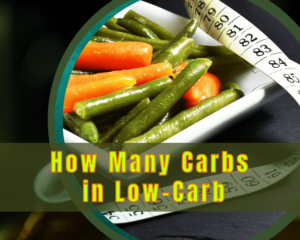
How Many Carbs in a Low-Carb Diet Is Ideal?
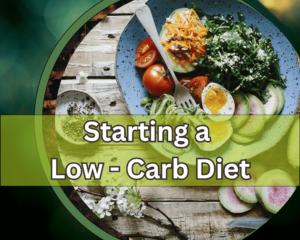
Jumpstart Your Journey: Starting a Low-Carb Diet 101
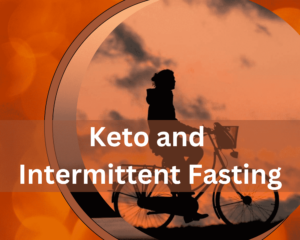
Keto and Intermittent Fasting Combo for Weight Loss

The Big Question About the Keto Diet for Weight Loss
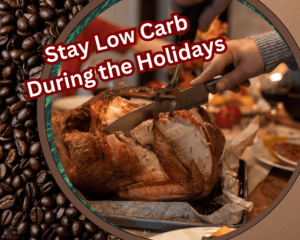
How to Stay Low Carb During the Holidays
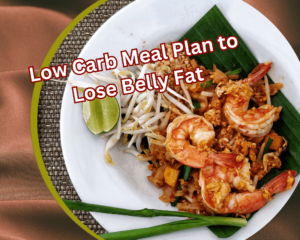
An Easy Low-Carb Meal Plan for Fat Loss

Mindful Eating: Key to Your Keto Diet During the Holidays

Your Ultimate Guide to the Best Keto Vegetables

What happens when you eat a low-carb high-fat diet?

How Many Carbs Are in a Low-Carb Diet? Let’s Take a Look.
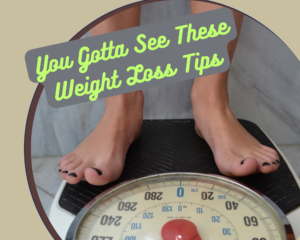
Top Tips for Fast and Effective Weight Loss
Disclosure: Please be aware that I may receive a small commission (at no extra cost to you) if you decide to make a purchase after clicking on a link in this article and making your purchase through one of my affiliate links.
This site does not provide financial or medical advice and is just for entertainment purposes. Before making any significant dietary changes, you should talk to your doctor.
Our affiliate disclosure is available in our privacy policy.










